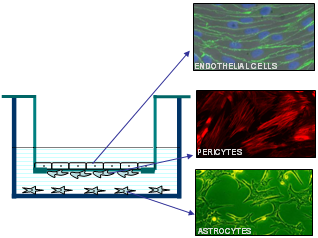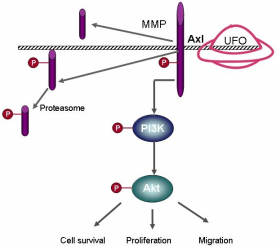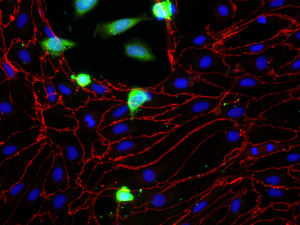
Brain Endothelial Research

Brain Endothelial Research
 |
Brain Endothelial Research |

Laboratory
of Molecular Neurobiology
Brain Endothelial Research |

MODEL SYSTEM
Due to its complex functions the BBB plays an important role
in the
clinical practice. First, there is increasing evidence that the BBB is
involved in the pathomechanism of a large number of CNS
diseases like stroke, brain trauma and tumors, neurodegenerative
disorders. Second, due to the relative impermeability of the barrier,
many drugs are unable to reach the CNS in therapeutically relevant
concentration, making the BBB as one of the major impediments in the
treatment of CNS disorders. In order to be able to directly investigate
molecular mechanisms regulating BBB function we are using an in vitro
model based on the culture of cerebral endothelial cells. The model can
be used for:
basic research
applied research
for the study of the interaction of drugs with the BBB and transport of
different drugs through the BBB.
Our methods of investigation include Western-blot, phosphorylation
analysis, proteomics, real-time PCR, RNA silencing, zymography,
immunofluorescence etc.

SIGNALING IN BRAIN ENDOTHELIAL
CELLS UNDER PHYSIOLOGICAL AND
PATHOLOGICAL CONDITIONS
The permeability of the BBB is under complex control. This control is
mediated by a large number of signaling molecules many of them being
localized to the junctional complex. Our research is focused on the
signal transduction pathways in cerebral endothelial cells activated by
pathological conditions like oxidative stress, hyperosmosis or presence
of inflammatory mediators. Recently we were able to identify src kinase
and the receptor tyrosin kinase Axl as key elements of endothelial
signaling.

INTERACTION OF METASTATIC TUMOR
CELLS WITH THE BBB
Brain metastases are clinically diagnosed in the majority of patients
having secondary localizations of melanoma. The prognosis for these
patients is very poor and treatment can be difficult because of rapid
progression of the disease. Since the brain does not have lymphatic
vessels, melanoma cells have to transmigrate through the blood-brain
barrier in order to reach the brain parenchyma. During this process the
tumor cells either must disrupt intercellular junctions or use the
transcellular route. We have shown that a disintegration of the
junctional complex could play an important role in the formation of
brain metastases in malignant melanoma.